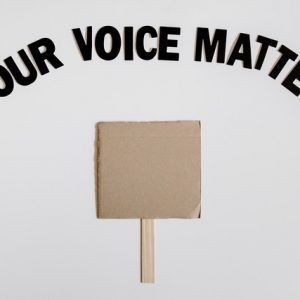In less than 100 days, we (Kenyans) will get to do what we do after every five years. We will wake up at the crack of dawn, file long lines and cast our vote. We will hope that the people we vote for will address our most pressing pain points; something we have been doing since 1969. Have we gotten what we want? The sentiment of the majority would be a resounding "no".
There is always more than meets the eye. As things stand, there is a need for serious interrogation of our political decision-making. Qazini, in collaboration with Siasa Place, took the initiative to spark conversations around this issue during a recent Twitter Space discussion.
What influences our political decision-making? Why do we make the choices that we make? Our contributing writer, Ron Barasa explored this subject matter with an article that classifies voters and their thought processes. This article lays the foundation for our recent conversation.
Types of voters and their thinking processes
Barasa classifies the voters as either fanatic voters, for sale voters, apathetic voters, or woke voters. The fanatics are obsessed with political figures, especially if they are tribal-related. These people do not question manifestos. They do not question the track record of the leaders. All they want is ‘mtu wetu’ (our person). The for-sale voter wants money. Their vote is sold to the highest bidder. As Mr. Ambasa, one of our panelists, noted, their slogan is tumalizane saa hii uende zako (let’s finish our business here and now and be on your way)
The apathetic voter is educated and is doing well in life. Mostly these are the middle class. They do not care about politics and political candidates. What matters to them is that their lives are not shaken. The woke voter is the ideal voter. They interrogate political agendas and manifestos. They are engaged and vote for the best candidate for the job.
Ideal vs. reality
Mr. Ambasa, a political scientist, noted that the ideal political decision-making scenario is one based on ideologies. “It should be based on the ideology of either a political candidate or political party. The ideology should inform the manifesto, and then the manifesto should communicate how the candidate will take care of the constituents.”
Mr. Mundalo, a political strategist, also acknowledged the role of ideological politics but noted that we often find a disconnect because what is on paper is not what happens on the ground. On paper, though very similar, political parties have solid ideologies and transformative agendas, but when it gets to the people on the ground who should be translating the ideology into action, we fail miserably.
A study on how people make political decisions
A study carried out by Twaweza, an organization that works on enabling citizens to exercise agency and governments to be more open and responsive, painted a picture of how Kenyans think when pondering a political decision. The study revealed that people are concerned about the candidate's developmental track record and whether this record is marred by any hints of corruption. Contrary to popular belief, the study revealed that ethnicity and gender do not, to a large extent, influence political decisions. Mr. Ambasa noted that the study results could be because we are not yet in the ‘political silly season.’ He argued that people default back to voting along tribal and regional alliances in ‘political silly season.'
The study highlighted the top three issues voters would like addressed. The first issue is the fight against corruption. Strengthening of the electoral system follows. Employment creation wraps things up. It was also noted that the number of people who have registered as voters this year dropped by 10 per cent. The number of people intending to vote, especially the youth, dropped by more than 20 per cent.
Leaders don't vote themselves in
In the final remarks of the panel, two ideas stood out. Voters are evolving. Barasa’s classification of voters can be viewed as a progression plan for voters. the phases that, as voters, we go through. The highest level is the woke voter. Thus we should all work on our political decision-making. We should rise above being political fanatics, political buyouts, and political apathy. We should rise to a level where we interrogate who we are voting for. But more importantly, why we are voting for them.
The second conclusion brought the conversation full circle. Leaders never vote themselves in. We vote them in. So it is high time we did the work on ourselves and made better decisions that benefit us and not the politicians. Because, as it was noted, there is no love affair when it comes to political decisions. It is a mutually beneficial relationship.
Also Read: Towards Peace in the 2022 Kenya General Elections





